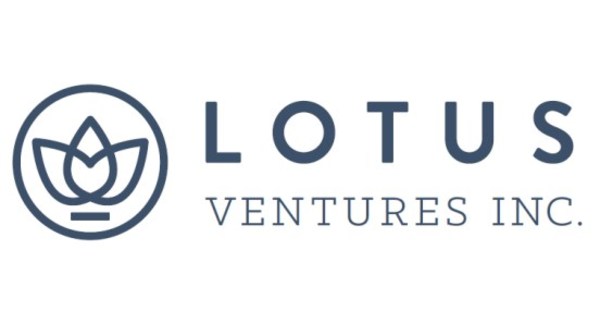

In this edition of "Rising High," The Fly conducted an exclusive interview with Daniel McRobert, investor relations and marketing at Lotus Ventures (LTTSF), a Canadian licensed cannabis producer. Here are some highlights:
INDOOR CULTIVATION: Lotus Ventures is a licensed cannabis producer with an indoor cultivation facility located in British Columbia’s North Okanagan region. The company, which owns premium-craft cannabis brand Lotus Cannabis, received it Health Canada license in March 2019 and has a collection of over 200 craft cultivars with authentic terpene profiles and high THC content. “On the cultivation side we’ve been focused on the dried flower market as a wholesale company in Canada,” McRobert said. “Initially we finished our first facility, which is an indoor warehouse style building that gives us a controlled environment for cultivation processes to always guarantee a consistent and premium medical grade product.” Lotus has been focused on the experienced consumer in the cannabis market, he said, and has realized some specific trends that consumers have gravitated towards. “One specifically would be the higher THC dried flower segment,” the IR head said. “With our indoor facility design we’re able to grow a unique and top-quality product the consumer is demanding in the market. Right now, we’re seeing the high THC dried flower segment thrive so we’re focusing straight on that market.” He added Lotus recently finished its first year of full sales with C$4.6M. “We basically tackled the market as a wholesale company with the strategy to grow into an inhouse branded and recreational company moving forward with future phases of our expansion,” he said.
COMPETITIVE EDGE: When asked about the company’s key differentiators, McRobert pointed to the company’s product, facility design and production team. “We started out as a wholesale company and with one of our initial investments we had an offtake agreement with a company called Auxly Cannabis (CBWTF),” he said. “We launched one of our first strains with their brand Kolab Project and they’ve been able to bring our product across Canada in eight of the ten provinces. We’ve been able to get the feedback from the consumers to verify that our product is really one of our differentiators.” The IR head added Lotus is able to consistently produce pharmaceutical grade cannabis that is testing with the highest components in THC and terpene levels. “Our facility design contributes,” he said. “We’ve designed a facility where we can produce the highest quality product with a financial performance that is also strong from a capital markets point of view.” Lotus is able to produce at a very low cost and remain consistent over the long-term, McRobert said, which in agriculture is very difficult to do. “Our facility design, our genetics and our production team expertise, we think that those are our three biggest differentiators from a competitive standpoint,” he said. “Over the long-term we believe those three factors will matter a lot more when investors are looking at companies to evaluate.”
EARNINGS: In April, Lotus reported second quarter net revenue of C$1.4M and net income of C$329,000, which compared to C$1.1M and C$335,888, respectively, for the same period last year. “We are producing at full capacity in our initial facility so we are expecting to be somewhat consistent from a sales aspect from here out,” the IR head said. “This is leading to our next phase of expansion.” Lotus has been able to have consistent margins both on the top-line and the bottom-line in initial facilities, he said, as senior management focused on operations and the financial performance of the company. “Sales, margins, gross margins and net income are metrics that we really focus on and we’ve been one of the first cannabis producers in Canada to consistently report a profit for operations,” he said. “Moving forward, we’re very focused on improving those metrics on a larger scale.”
EXPANSION PLANS: Lotus has created a scalable, purpose-built facility located on 23 acres in British Columbia’s North Okanagan region for low-cost production of high-quality cannabis. “The reason for the location was a mix of the background of our production team,” McRobert said. “Our chief operating officer [Carl Correia] among others on our team have grown up in the Okanagan.” He added the corporate management team is based in Vancouver, giving Lotus a nice combination between having lower mainland reach as well as production in one of the more central agricultural hubs in Canada. “The Okanagan Valley, it’s the center for agriculture,” the IR head said. “Cherries, apples, cannabis obviously and on top of that, British Columbia also provides better rates on energy and electricity.” He said the Okanagan property supplied all the resources and met all the requirements Lotus needed for the operation. “It’s been cost-effective and it’s in an area where we expect future growth,” he said. The company already has expansion plans to add another 30,000 square feet to the existing facility on the Okanagan property, McRobert said, and expects that to supply an additional 5M grams per year, up from the 2M gram capacity in the company’s initial phase. “We’re in the process of securing the financing for that right now so we’re hoping to get started on the expansion phase pretty quickly,” he said. When asked about potential plans to expand to the U.S., the IR head said there are none as cannabis is still federally illegal. “However with our facility design we believe we have some intellectual property that other producers, especially larger producers that are operating in multiple states, can utilize,” he said. “We believe that there could be expansion or licensing opportunities like that around the world."
DELIVERY METHODS: As technology advances and delivery systems for cannabinoids become more diverse, the IR head said Lotus believes flower will always continue to be the market leader. “Moving forward there will probably be some faster-growing segments of the market but from a total market share standpoint, we believe flower will always be there,” he said. “We’ve been able to consistently produce a high-quality product in a medical-grade setting, so it made the most sense to stick to our core competency. And for us that’s flower cultivation.” McRobert added the company sees opportunities in potentially partnering with a biopharma group or research and development group. "It would be really cool if we could eventually lend one of our strains out for research purposes,” he said. “And if a processor could even use that and extract the cannabinoids from one of our strains and use that for a different purpose, that is very exciting to us as well.” When looking at derivatives, the IR head said he believes market share in the states has typically been 20-30% and he could see Canada following the same progression in sales over the long-term. “However, we’re focused on flower,” he said. “We’re finding the most success with flower cultivation right now so we’ll stick to what we’re experts at.”
CORONAVIRUS: The coronavirus pandemic has impacted many companies globally in the cannabis space, however Lotus had a relatively small team in place when the outbreak hit allowing it to mitigate the impact, McRobert said. “We transitioned from a start-up to a fully operational company and we’ve been able to keep our team very tightly-knitted,” he said. “It hasn’t resulted in any layoffs because of the pandemic and everyone has been able to keep on working throughout this time.” Looking at the industry as a whole, the IR head said Lotus has definitely seen shifts in retail distribution models due to the pandemic. “Some of the retail stores went to a takeout model or curbside pickup,” he said. “That was a major switch in Ontario, one of Canada’s largest markets, so with those changes and how consumers are actually obtaining the product, there definitely could have been some larger macro sales trends because of the coronavirus.” Lotus has also seen a number of companies utilizing ecommerce abilities due to the outbreak, McRobert said. “There is always going to be those consumers that like that in-person experience and go into dispensaries for that trusted conversation with the budtenders and that brand loyalty, but definitely we’re seeing, as a global trend, a lot of businesses are moving into ecommerce,” he said. “Ecommerce will turn into a standard practice but it won’t wipe out the brick-and-mortar stores.” The environment in Canada is seemingly moving back towards normal operations so it will be interesting to see that play out, McRobert said. “Hopefully it won’t be too much longer because I think it’s had some effect on the industry but from a company-specific standpoint, we haven’t been affected too much, which is a positive for us,” he said.
CHALLENGES: When asked about the biggest challenges facing the industry, the IR head said that building brands in Canada initially presented a lot of difficulties. “It was really the Wild West a couple years right after legalization,” he said. “There was a huge inflow of supplies from whoever was in the industry at that point.” However, the space has since matured, McRobert said, and consumers have become more knowledgeable allowing increased brand awareness. “People are beginning to learn which different brands are in the industry, what they offer and what the products behind the brands are,” he said. “If companies have had a quality product the from the start, they’ve built that brand loyalty throughout the whole process and it’s going to carry them forward.” The IR head said he expects another wave of smaller quality producers coming into the industry over the next few years. “Definitely exciting times ahead in Canada and the U.S.,” he said.
OPPORTUNITIES: As the cannabis space develops, McRobert said he sees opportunities in demand trends as well as expansion of Lotus’ production. "We’re finding there’s definitely consumer demand in certain segments of the market like high THC,” he said. “That’s been a driving factor in major provinces in Canada and has driven our sales growth helping give us a real business opportunity to expand our current production.” The increased production will allow Lotus to bring more strains to market, McRobert said, adding it will also enable the company to eventually get into the retail space under its own branded product. “We see extremely positive sales growth moving forward with our expansion and we look forward to bringing more premium product to market,” he said.
OTHER CANNABIS/PSYCHEDELIC STOCKS: Other publicly-traded companies in the space include Acreage (ACRHF), Akerna (KERN), Aleafia (ALEAF), Aurora Cannabis (ACB), Body and Mind (BMMJ), CannTrust (CTST), Canopy Growth (CGC), Canopy Rivers (CNPOF), Clever Leaves (CLVR), Compass Pathways (CMPS), CordovaCann (LVRLF), Cresco Labs (CRLBF), Cronos (CRON), CV Sciences (CVSI), CURE Pharmaceutical (CURR), Delta 9 (VRNDF), Emerald Health (EMHTF), Fire & Flower (FFLWF), FluroTech (FLURF), General Cannabis (CANN), Greenlane (GNLN), Green Thumb Industries (GTBIF), GrowGeneration (GRWG), Harborside (HBORF), Hemp (HEMP), HEXO (HEXO), High Tide (HITIF), IM Cannabis (IMCC), India Globalization Capital (IGC), Indiva (NDVAF), Inner Spirit (INSHF), Innovative Industrial Properties (IIPR), Khiron Life Sciences (KHRNF), Lowell Farms (LOWLF), MediPharm Labs (MEDIF), MedMen Enterprises (MMNFF), MJardin Group (MJARF), Neptune Wellness (NEPT), Omnicanna (ENDO), Organigram (OGI), Planet 13 (PLNHF), Skye Biosciences (SKYE), SLANG Worldwide (SLGWF), Sproutly (SRUTF), Stem Holdings (STMH), Sunniva (SNNVF), Supreme Cannabis (SPRWF), TerrAscend (TRSSF), Tetra Bio-Pharma (TBPMF), Tilray (TLRY), Trulieve (TCNNF), Valens (VLNCF), Village Farms (VFF), Goodness Growth (GDNSF), WeedMD (WDDMF), Wildflower Brands (WLDFF), YSS Corp. (YSSCF), Zynerba (ZYNE) and 4Front Ventures (FFNTF).
